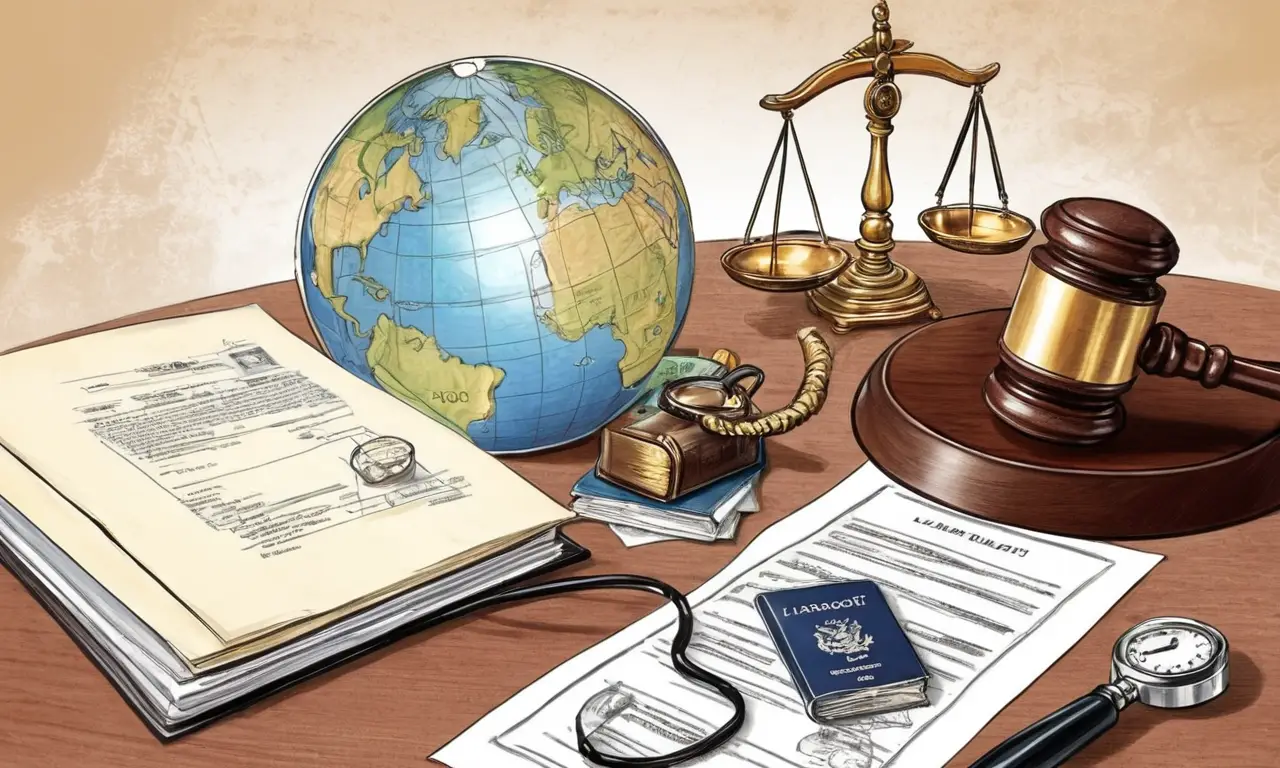Have you been wronged by someone living overseas and are wondering if you can seek legal recourse? The ability to can you sue someone from another country is a complex issue that hinges on international law and jurisdictional intricacies. While it might seem daunting, understanding the key factors involved can shed light on your potential options.
This article will delve into the complexities of suing someone abroad, outlining the essential considerations you must address. We’ll explore international law principles, the nature of your claim, applicable treaties, the defendant’s presence or assets within your jurisdiction, and the crucial role legal counsel plays in navigating this challenging terrain. By the end, you’ll have a clearer understanding of whether pursuing legal action against an individual from another country is feasible for your situation.
International Law & Jurisdiction
International law governs relationships between nations and individuals across borders. When it comes to lawsuits involving parties from different countries, determining which jurisdiction has the authority to hear the case becomes paramount. This concept is known as “jurisdiction.” Generally, a court’s jurisdiction is based on factors like where the defendant resides, where the alleged harm occurred, or where the contract was formed.
However, international law often complicates matters. Treaties between countries may establish specific jurisdictional rules for certain types of disputes. Additionally, principles of “comity” and “forum non conveniens” come into play, which encourage courts to respect each other’s jurisdiction and avoid unnecessary conflicts. Navigating these complexities requires a thorough understanding of international legal frameworks and the specific circumstances of your case.
Nature of the Claim

The type of claim you have against the individual from another country significantly influences your ability to sue them. Some claims, like those involving breach of contract or intellectual property infringement, are more easily addressed in international courts due to established legal precedents and treaties.
However, personal injury claims or disputes arising from family law matters can be more challenging to litigate across borders. The laws governing these areas often vary significantly between countries, making it difficult to establish a consistent legal framework for resolution. It’s crucial to assess the nature of your claim and determine if there are international legal mechanisms that could provide a basis for pursuing legal action.
Applicable Treaties
Numerous treaties exist between nations that address specific types of disputes or establish frameworks for resolving them internationally. For example, the Hague Convention on Choice of Court Agreements governs agreements between parties to choose a specific court to hear their disputes. Similarly, bilateral investment treaties often provide mechanisms for resolving investment-related disputes between companies from different countries.
Determining if any applicable treaties exist in your case can significantly impact your legal options. Treaties often create binding obligations for signatory nations and may offer avenues for dispute resolution that are more efficient or favorable than traditional litigation. Consulting with an attorney specializing in international law is essential to identify relevant treaties and understand their implications for your situation.
Defendant’s Presence or Assets

A key factor in determining whether you can can you sue someone from another country is the defendant’s presence or assets within your jurisdiction. Generally, courts have more authority to hear cases involving defendants who reside or have significant assets in their territory. This principle is known as “personal jurisdiction.”
If the defendant lacks a physical presence or substantial assets in your jurisdiction, it may be challenging to enforce any judgment obtained against them. In such cases, alternative legal strategies, like pursuing action in the defendant’s home country or seeking assistance from international organizations, might be necessary.
Legal Counsel for International Litigation
Navigating the complexities of can you sue someone from another country requires specialized expertise. Consulting with an attorney experienced in international litigation is crucial to assess your legal options, identify applicable laws and treaties, and develop a strategic approach tailored to your specific circumstances.
An experienced attorney can guide you through the jurisdictional hurdles, help you gather evidence effectively, and represent your interests in negotiations or court proceedings. They can also advise you on potential challenges, such as enforcing judgments across borders, and explore alternative dispute resolution mechanisms like arbitration or mediation.
Conclusion
Determining whether you can can you sue someone from another country is a multifaceted process that involves navigating international law, jurisdictional complexities, and the specific nature of your claim. While it may seem daunting, understanding these key factors and seeking guidance from an experienced attorney specializing in international litigation can empower you to make informed decisions about pursuing legal action abroad. Remember, thorough research, careful consideration, and expert legal counsel are essential for successfully navigating this intricate legal landscape.



